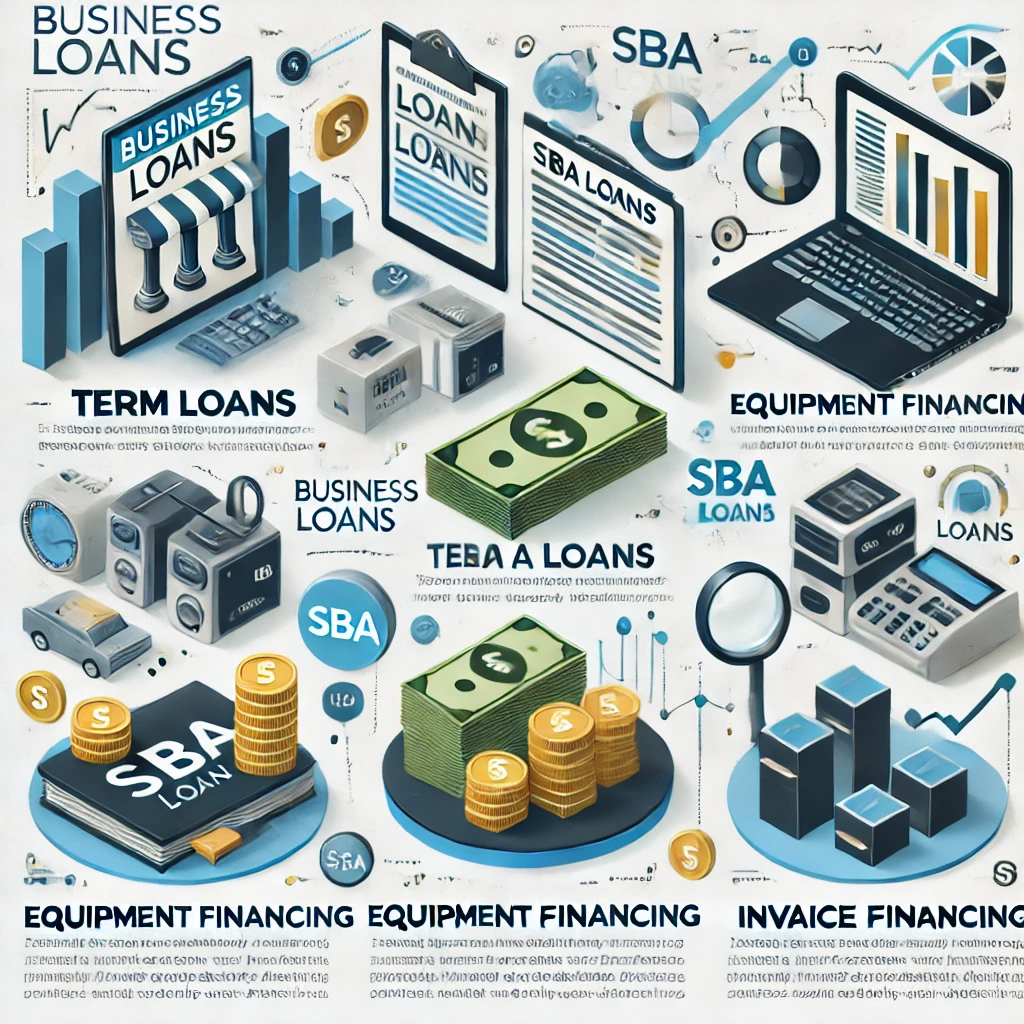Table of Contents
ToggleSecuring Business Startup Funding: A Comprehensive Guide
Starting a new business is an exhilarating journey filled with hopes, dreams, and countless opportunities. However, one of the significant challenges entrepreneurs face is securing the necessary funds to get their venture off the ground. Understanding the various options for business startup funding and preparing your business for funding approval are crucial steps for any entrepreneur.
Understanding Business Lines of Credit
A business line of credit is a versatile financing option that provides startups with access to funds up to a predetermined limit, allowing for flexible borrowing and repayment as needed. Think of it as a safety net for your business finances, ready to catch you when unexpected expenses arise or when opportunities knock.

Advantages of a Business Line of Credit
A business line of credit offers several compelling benefits. Firstly, it provides flexibility in borrowing; you only draw funds when necessary and pay interest only on the amount you use. This is perfect for managing cash flow, especially during those lean months or unexpected financial hiccups. Additionally, utilizing a business line of credit responsibly can help build a strong business credit profile, paving the way for more significant financing opportunities in the future. Typically, the average business line of credit ranges from $10,000 to $100,000, depending on your business’s financial health and creditworthiness.
How to Qualify for a Business Line of Credit
Securing a business line of credit is not as daunting as it may seem. Here are some essential criteria:
• Credit Score: Aim for a minimum credit score of 600-650. A higher score improves your chances significantly.
• Revenue: Your business should demonstrate annual revenue of at least $50,000 to $100,000. Consistent revenue streams signal your ability to repay borrowed amounts.
• Business Plan: A well-documented business plan showcasing your business’s financial health and growth potential is indispensable.

Understanding Business Loans
Business loans are another crucial funding option for startups. Unlike lines of credit, business loans provide a lump sum of money that you repay over a fixed term with interest.
Types of Business Loans
There are various types of business loans available, each catering to different needs:
• Term Loans: These are traditional loans where you receive a lump sum upfront and repay it over a set period. Loan amounts typically range from $25,000 to $500,000.
• SBA Loans: Backed by the government, Small Business Administration (SBA) loans offer favorable terms and can provide up to $5 million in funding.
• Equipment Financing: This loan is specifically for purchasing business equipment and usually covers up to 100% of the equipment cost.
• Invoice Financing: This allows you to borrow against your outstanding invoices, typically providing up to 85% of the invoice value.
Benefits of Business Loans
Business loans provide access to larger sums of money with fixed repayment terms, often at lower interest rates compared to lines of credit. This stability can be invaluable for long-term planning and investment in substantial business assets or expansion.
How to Qualify for a Business Loan
To qualify for a business loan, startups need to meet several criteria:
• Credit Score: Maintain a good credit score, typically 680 or higher.
• Revenue: Demonstrate annual revenue of at least $100,000 to $250,000.
• Down Payments: Some loans, like equipment financing, may require a down payment, usually 10-20% of the equipment cost.
• Business Plan: Present a comprehensive business plan, including detailed financial projections and proof of profitability.
Preparing Your Startup for Business Funding
Preparation is key to securing business funding. Here’s how you can set your business up for success.
Building a Strong Business Credit Score
Establishing and improving your business credit score involves separating personal and business finances, ensuring timely payments on existing debts, and keeping credit utilization low. A strong credit score not only improves your funding options but also secures better interest rates.

Creating a Solid Business Plan
A robust business plan is your blueprint for success. It should clearly articulate your business goals, strategies for achieving them, and detailed financial projections. This plan serves as a critical tool for convincing lenders and investors of your business’s potential.
Organizing Financial Statements and Documents
Keeping accurate financial records is essential. This includes maintaining up-to-date income statements, balance sheets, and cash flow statements. These documents provide a clear picture of your business’s financial health and are necessary for securing business startup funding. Accurate bookkeeping practices will make it easier to present a compelling case to lenders and investors.
Establishing Business Revenue and Cash Flow
Consistent revenue streams and optimized cash flow are vital for showcasing your startup’s potential for profitability and long-term success. Demonstrating steady revenue and effective cash flow management indicates that your business can repay borrowed funds. Implementing strategies to enhance revenue and manage expenses effectively will strengthen your business startup funding applications.
Conclusion
Securing business startup funding requires thorough preparation and understanding of available financing options. By exploring business lines of credit and various types of business loans, and ensuring your business meets the necessary criteria, you can enhance your chances of obtaining the funding needed to thrive. Remember, building a strong business credit score, creating a solid business plan, and maintaining organized financial records are key steps in this process. For personalized assistance in financial planning and bookkeeping, Contact Figgie’s Finance Today.


Additional Resources
For further assistance in managing your business finances and building business credit, consider using the following tools:
• QuickBooks: A powerful accounting software to help manage your business finances.
• 1Password: Securely store and manage your business passwords and sensitive information.









